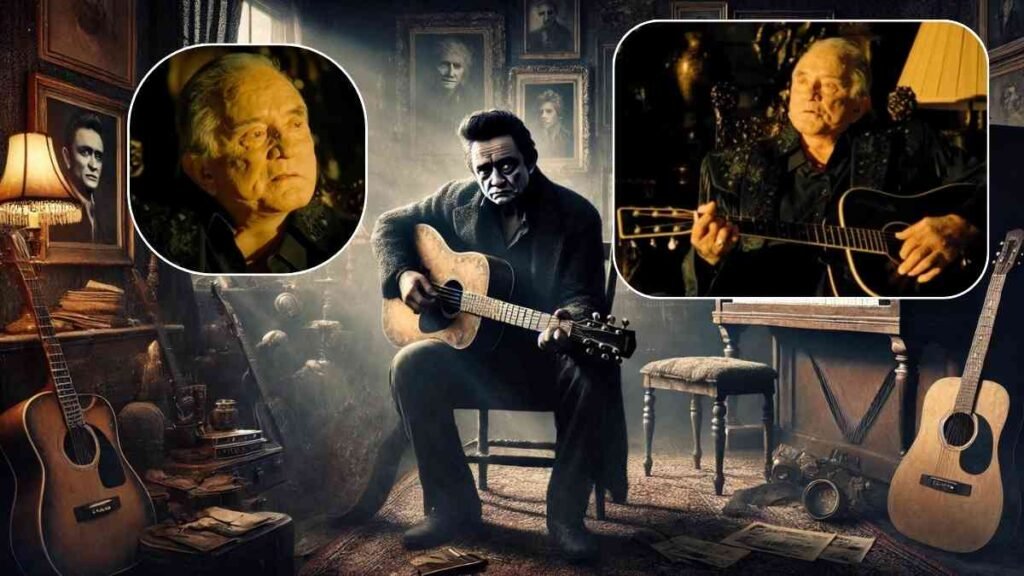Introduction
Johnny Cash Hurt is more than a mere song; it is an intimate journey into the depths of human emotion. This cover, originally by Nine Inch Nails, is a haunting testament to the themes of regret, redemption, and mortality. Johnny Cash’s rendition transforms the song into a deeply personal and universally relatable masterpiece, cementing its place as one of the most emotionally resonant covers of all time.
The Origins of “Hurt”
Written by Trent Reznor, “Hurt” first appeared on Nine Inch Nails’ 1994 album The Downward Spiral. The original was a raw exploration of self-destruction and addiction. With its industrial rock undertones, the song spoke to a specific audience navigating pain and inner turmoil. While the original is powerful in its own right, it took Johnny Cash to bring the song’s universal message to an even broader audience.
Johnny Cash’s Rendition
Johnny Cash’s version, featured on his 2002 album American IV: The Man Comes Around, strips the song of its industrial elements. What remains is a raw, acoustic arrangement accompanied by Cash’s weathered voice, imbued with the weight of decades of life experiences. The simplicity of the arrangement allowed the emotion in Cash’s voice to take center stage, creating an indelible connection with listeners.
The Impact of Age and Experience
At the time of recording, Johnny Cash was in the twilight of his life. Struggling with health issues and mourning the loss of his wife, June Carter Cash, his personal struggles infused his rendition with authenticity and depth. Every note and lyric resonated with an intensity born of lived experiences, making the song feel more like a confessional than a performance.
The Music Video: A Visual Masterpiece
The music video for “Hurt,” directed by Mark Romanek, is a visual exploration of impermanence. The juxtaposition of archival footage from Cash’s younger days with images of a deteriorating mansion created a stark contrast, symbolizing the inevitability of aging and the fleeting nature of material success. The video’s imagery, from fading photographs to decaying artifacts, underscored the themes of the song and brought a poignant finality to Cash’s career.
Reception and Critical Acclaim
The cover and its accompanying video garnered widespread critical acclaim. Critics and audiences alike were moved by the raw vulnerability displayed in the performance. In 2011, NME named the video the greatest music video of all time, a testament to its lasting impact. The song also received a Grammy nomination, further solidifying its place in music history.
Trent Reznor’s Reaction
Initially hesitant about the cover, Trent Reznor was deeply moved after watching the music video. He famously remarked, “It’s not my song anymore,” acknowledging that Cash had imbued the track with a new, deeply personal meaning. This passing of ownership speaks volumes about the transformative power of music and the respect shared between the two artists.
Cultural Significance
Johnny Cash’s rendition of “Hurt” transcended its origins, becoming an anthem for reflection and resilience. The song struck a chord with listeners from all walks of life, uniting audiences with its universal themes of loss and redemption. It introduced a younger generation to Johnny Cash’s music while reaffirming his status as an icon in the industry.
Why It Resonates
The universal themes explored in “Hurt” make it timeless. Listeners are drawn to its raw honesty and the way it confronts vulnerability head-on. Cash’s ability to channel his struggles into the song gave it a gravitas that few other performances achieve, making it a go-to track for anyone seeking solace or introspection.
The Legacy of “Hurt”
Johnny Cash’s “Hurt” is more than a song; it is a deeply personal statement and a reflection on life’s fragility. Its enduring appeal lies in its ability to connect with listeners on an emotional level, making it one of the most celebrated covers in music history. Cash’s heartfelt performance ensured that the song will continue to resonate with audiences for generations.
Conclusion
Johnny Cash Hurt stands as a shining example of how music can transcend its original form to become a universal language of emotion. It is a testament to Johnny Cash’s artistry and his ability to turn a deeply personal performance into a collective experience for all who listen.


